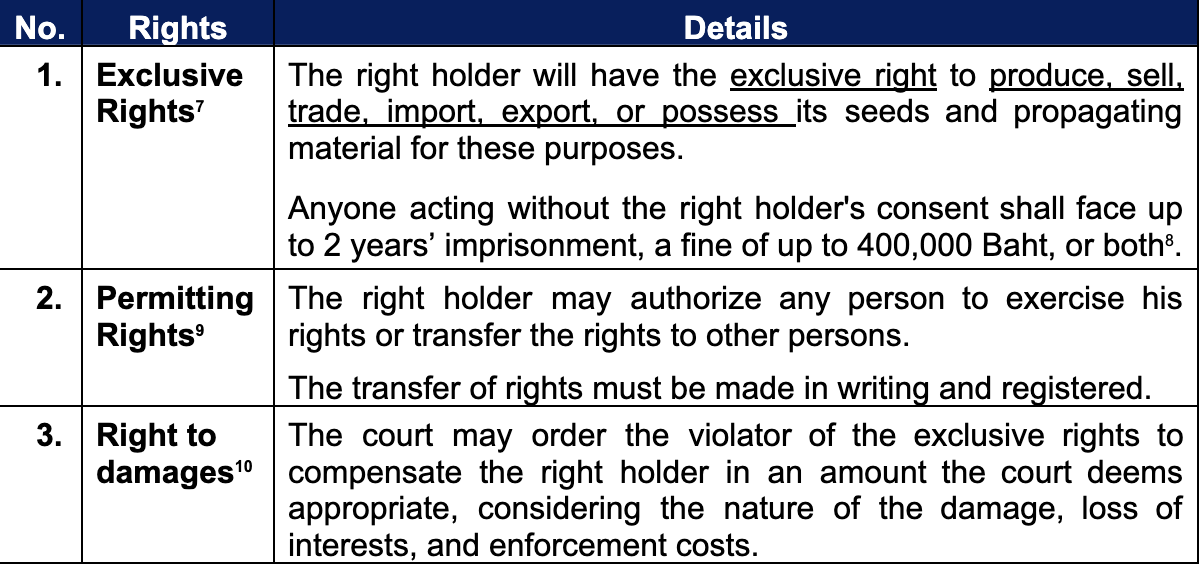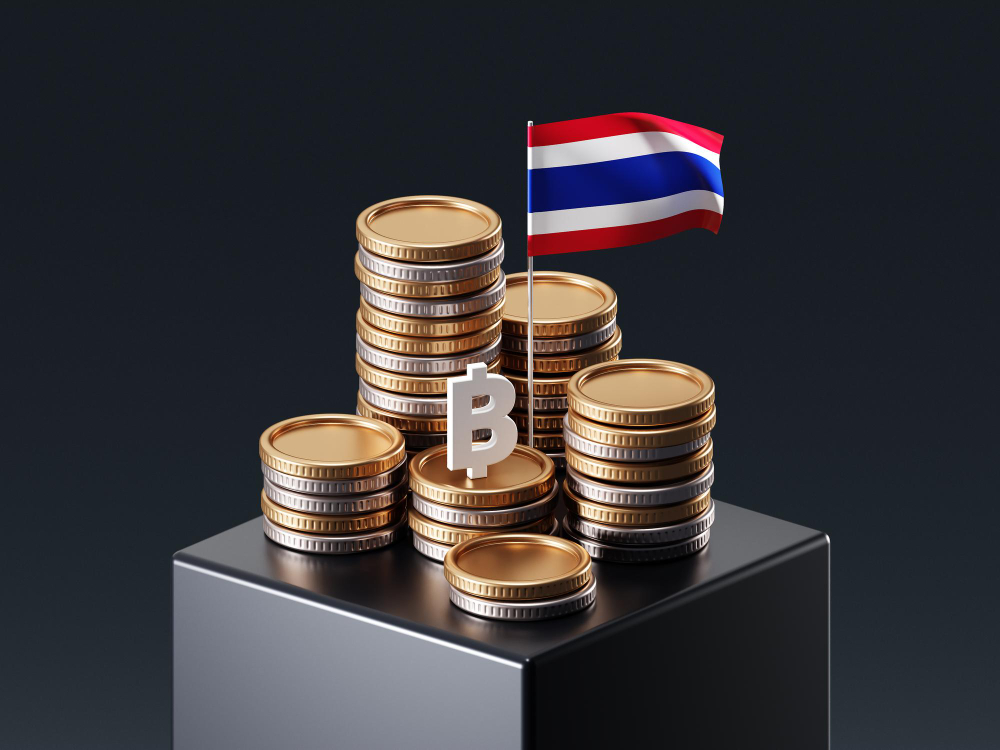Plants Varieties, Its registration, and the Protection of Rights

IN BRIEF
Developers or breeders who invest in the plant variety development process should be legally protected. Under Thai law, protection is provided through the registration of new plant varieties (“NPV”) under the Plant Variety Protection Act, B.E. 2542 (1999) (“PVPA”). This aligns with the objectives of the PVPA, which aims to create an incentive by granting legal rights and protection to NPV.
KEY TAKEAWAYS
A. Registration of NPV
To register an NPV, an applicant must be a qualified breeder with the characteristic prescribed by law such as:
1) being of Thai nationality or being a juristic person with headquarter located in Thailand,
2) being of the nationality of a country that allows a Thai national or juristic person with headquarter located in Thailand to apply for protection within that country,
3) being of the nationality of a country which is a party to an international convention or agreement on plant variety protection to which Thailand is also a party, or
4) currently residing or having proper industrial or commercial enterprise in Thailand or in a country which is a party to an international convention or agreement on plant variety protection to which Thailand is also a party.
Also, the registrable NPV must have the characteristics as specified by law, such as:

Once all qualifications are met, an application must be submitted to the Department of Agriculture (“Department”), Ministry of Agriculture and Cooperatives, which will be reviewed and processed by the officer. Thereafter, it will be published by the Director-General of the Department of Agriculture. After the publication, any person who believes that, they have a superior right to the NPV application, or that the registration fails to meet legal requirements may file an objection with an official within 90 days from the publication date.
Please note that the entire registration process, without objections, may take around
30-34 months, as planting the NPV is also part of the registration process.
B. Protection of Rights of Holders of Certificate of a NPV Registration
After approval of the NPV, the Director-General will announce the name of the NPV that has been registered. An applicant will receive a certificate of a NPV registration and shall be the right holder of such NPV. By that, right holder is eligible for the following actions;

C. Duration of protection
The Certificate of a NPV registration shall be valid for the following periods:

CONCLUSION
In summary, developers, or breeders of a protected NPV under the PVPA will have the exclusive rights over its production, sale, trade, and distribution. In an event of act of unlawful production, sell, trade, importation, exportation, or possession, the right holder of the NPV may exercise the legal rights to the courts to stop the violator and to compensate for the damages and losses. The violator may also be subject to penalty of up to 2 years' imprisonment, a fine of up to 400,000 Baht, or both.
At ILAWASIA CO., LTD., we have over 17 years of expertise in plant variety protection, litigation and enforcement in Thailand, Myanmar, Cambodia, and Laos. With our extensive experience, we are well-equipped to assist your business in achieving its goals while minimizing legal risks relating to this NPV protection and enforcement. We are committed to helping you succeed.
Author
Related Practices
- Corporate & Commercial













